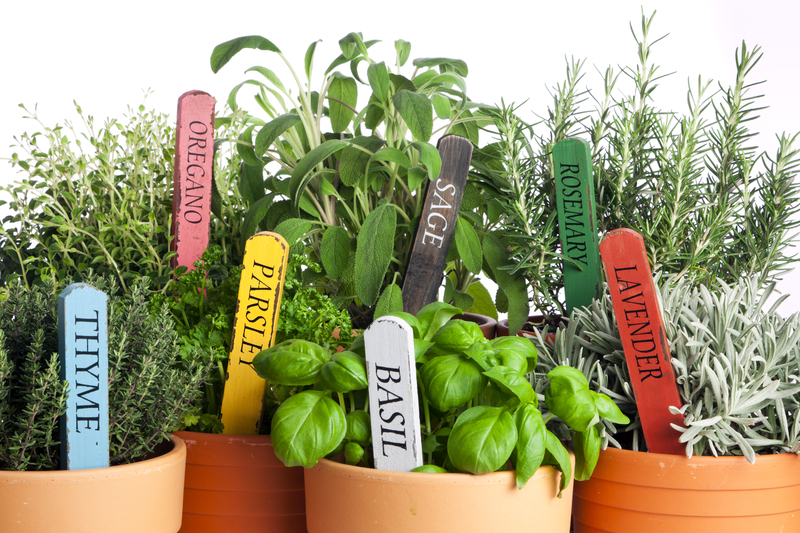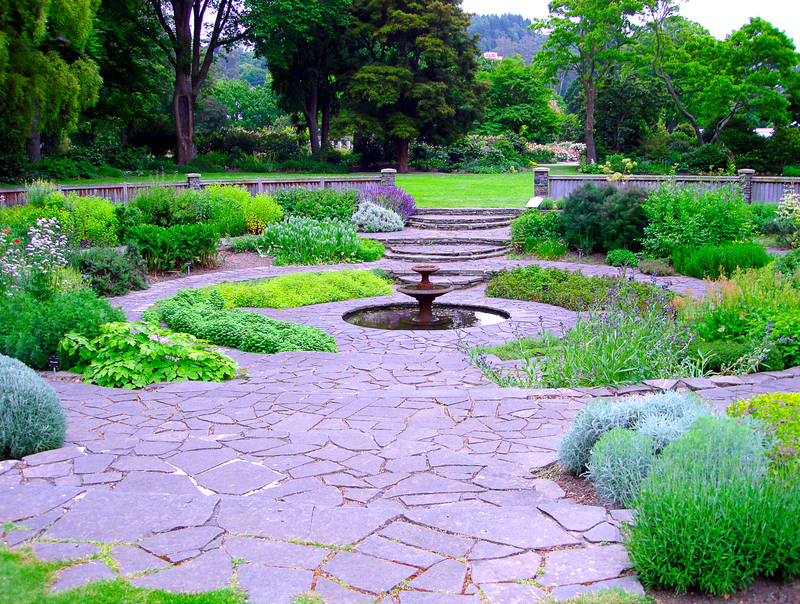Beginner's Guide to Gardening: 9 Must-Know Tips for Success
Posted on 08/06/2025
Beginner's Guide to Gardening: 9 Must-Know Tips for Success
Are you dreaming of creating a lush, vibrant outdoor sanctuary? Perhaps, you've always admired flourishing gardens but felt a little overwhelmed when it comes to starting your own. Whether you have a sprawling backyard or a modest balcony, cultivating a thriving garden is possible--even for newcomers! This comprehensive Beginner's Guide to Gardening will reveal 9 essential gardening tips to set you up for success. From choosing the right plants to understanding soil basics, these expert pointers will help you turn your gardening dreams into reality.
Why Gardening Is a Fantastic Hobby for Beginners
Gardening is much more than a leisure activity; it's a fulfilling hobby that offers numerous benefits. Nurturing plants can reduce stress, improve your mood, and offer a rewarding sense of accomplishment. Plus, the act of digging in the dirt and tending to greenery supports physical health and can even boost your immune system. With a little knowledge, even absolute beginners can experience the joy of watching things grow. So, let's dive into those must-know gardening tips!

1. Start with a Plan: Visualize Your Garden Space
Every successful garden begins with a plan. Take time to analyze your available space. Is it in full sun, partial shade, or mostly shadowed? Do you have containers, raised beds, or open ground? Consider what you want to grow--are you interested in flowers, vegetables, herbs, or a mix?
- Sketch your garden layout - Even a rough drawing can help!
- Mark sunny and shady spots--different plants thrive in different light conditions.
- Identify nearby water sources, paths, and other features.
A solid plan ensures you won't be overwhelmed down the road. It reduces costly mistakes and helps you create a beautiful, functional space.
2. Know Your Soil: The Foundation of Healthy Gardening
Soil is the lifeblood of any garden. Healthy soil contains the necessary nutrients and structure that allow plants to thrive. Before you begin planting, take time to assess your soil:
- Is it sandy, clay, silty, or loamy?
- Does it drain well or become waterlogged after rain?
- Does it crumble nicely, or is it hard and compacted?
To dramatically improve your gardening success, test your soil's pH with an affordable home kit. Most plants prefer a slightly acidic to neutral pH (6.0 to 7.0). If your soil is lacking, amend it with compost, well-rotted manure, or organic matter. This adds nutrients and improves structure, resulting in vital, happy plants!
3. Choose the Right Plants for Your Garden
One of the golden rules in any Beginner's Guide to Gardening is to select suitable plants. Not all plants are created equal, especially when it comes to temperature, sunlight, and soil requirements.
- Research plant zones: Use the USDA Plant Hardiness Zone Map to determine which plants thrive in your local climate.
- Read plant tags and seed packets: They provide critical info on light, spacing, and care.
- Opt for easy-to-grow varieties such as marigolds, sunflowers, lettuce, and radishes for a confidence boost.
Choosing the right plants for your environment significantly boosts your chances of gardening success, especially as a beginner.
4. Embrace Tools of the Trade
You don't need a shed full of fancy equipment to start gardening. However, a few basic gardening tools are invaluable for beginners:
- Hand trowel - For digging small holes, transplanting seedlings, and weeding.
- Pruning shears - Essential for trimming plants and harvesting veggies.
- Watering can or hose - Choose one with a gentle spray to avoid damaging delicate plants.
- Gardening gloves - Protect your hands from thorns, dirt, and blisters.
Quality tools last longer and make gardening much more enjoyable. Clean your tools after each use and store them safely.
5. Master the Art of Watering
Watering may seem straightforward, but it's one of the most common areas where beginners struggle. Too much or too little can spell disaster for your garden.
- Water early in the morning or late afternoon to minimize evaporation.
- Deep, infrequent watering encourages deeper root growth and healthier plants.
- Check soil moisture regularly: Stick your finger about an inch into the soil; if it feels dry, it's time to water.
Mulch can help retain moisture, regulate soil temperature, and suppress weeds. By mastering your watering routine, you'll avoid most beginner gardening mistakes!
6. Don't Forget to Feed Your Plants
Like humans, plants need food to grow strong and healthy. While rich, amended soil provides a great start, you'll likely need to supplement nutrients--especially during the growing season.
- Use organic fertilizers like compost tea, fish emulsion, or aged manure for gentle, steady nutrition.
- Follow label instructions to avoid over-fertilizing, which can harm plants.
- Pay attention to signs of nutrient deficiencies, such as yellowing leaves or stunted growth.
7. Keep Weeds Under Control
Weeds compete with your garden plants for water, light, and nutrients--so keeping them in check is essential. Here's how beginners can manage weeds without chemicals:
- Pull weeds regularly by hand. It's easiest when the soil is moist.
- Apply a thick layer of mulch (like straw, shredded bark, or grass clippings) to smother weed seeds and prevent them from sprouting.
- Cultivate your soil gently with a hoe to dislodge small weeds before they take hold.
Stay consistent, and you'll keep your garden healthy while minimizing competition for your beloved plants.
8. Watch for Pests and Diseases
Even the healthiest gardens occasionally encounter pests or diseases. As a gardening beginner, the key is to catch issues early.
- Inspect your plants regularly for holes, spots, wilting, or insects.
- Identify the culprit--sometimes it's just a cosmetic issue or a harmless insect!
- Use natural solutions like hand-picking pests, introducing beneficial insects (e.g., ladybugs), or applying organic treatments such as neem oil.
Healthy, well-tended plants are more resistant to problems, making prevention the best medicine.
9. Be Patient & Enjoy the Learning Process
Perhaps the most crucial tip for beginner gardeners is to be patient and persistent. Plants take time to grow, and not all of your efforts will yield success right away. Every gardener--even the most skilled--faces setbacks.
- Celebrate your victories, no matter how small--like that first sprouted seed or blooming flower.
- Learn from mistakes and try new techniques next season.
- Document your garden journey with notes and photos--it's fun to look back on how far you've come!
Gardening isn't just about the end results; it's about the journey of learning, growing, and connecting with nature.

Bonus: Top Gardening Resources for Beginners
Want to deepen your knowledge and fuel your passion? Here are some trusted resources to help beginners cultivate gardening success:
- Extension Offices: Local extension services often offer free advice, classes, and soil testing.
- Online Gardening Forums - Join communities like GardenWeb or Reddit's r/gardening to ask questions and share stories.
- Books: Check out The Vegetable Gardener's Bible by Edward C. Smith or Rodale's Basic Organic Gardening.
- YouTube Channels - Search for beginner gardening tutorials that walk you through everything from seed starting to harvesting.
Conclusion
Starting your own garden may seem daunting, but following these nine essential gardening tips for beginners will put you on the path to a beautiful and productive oasis. Remember: plan your space, nurture your soil, select the right plants, arm yourself with basic tools, water and feed thoughtfully, control weeds and pests, and above all, enjoy every moment as you learn.
With patience, observation, and a little effort, your Beginner's Guide to Gardening will help you grow not just plants--but confidence, knowledge, and a lifelong love for nature. Happy gardening!
Latest Posts
Crafting a Magical Outdoor Space for Children to Explore
Explore ways your garden can become a climate change ally
Converting Organic Waste into Fertile Soil Marvel

